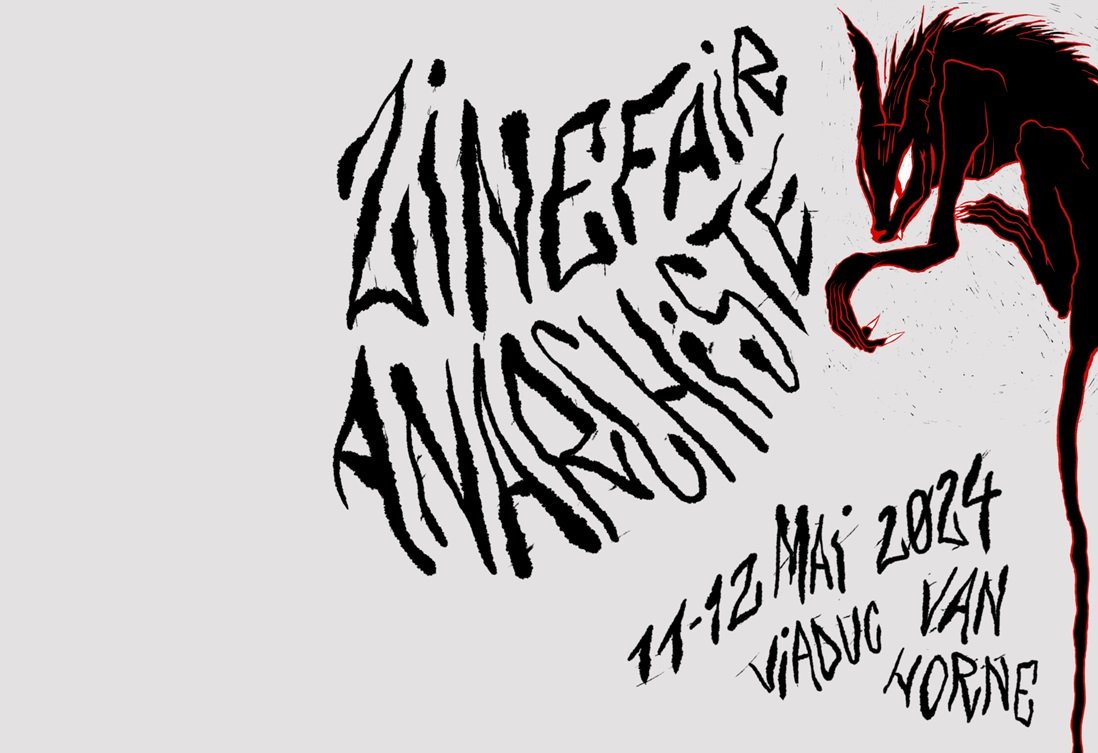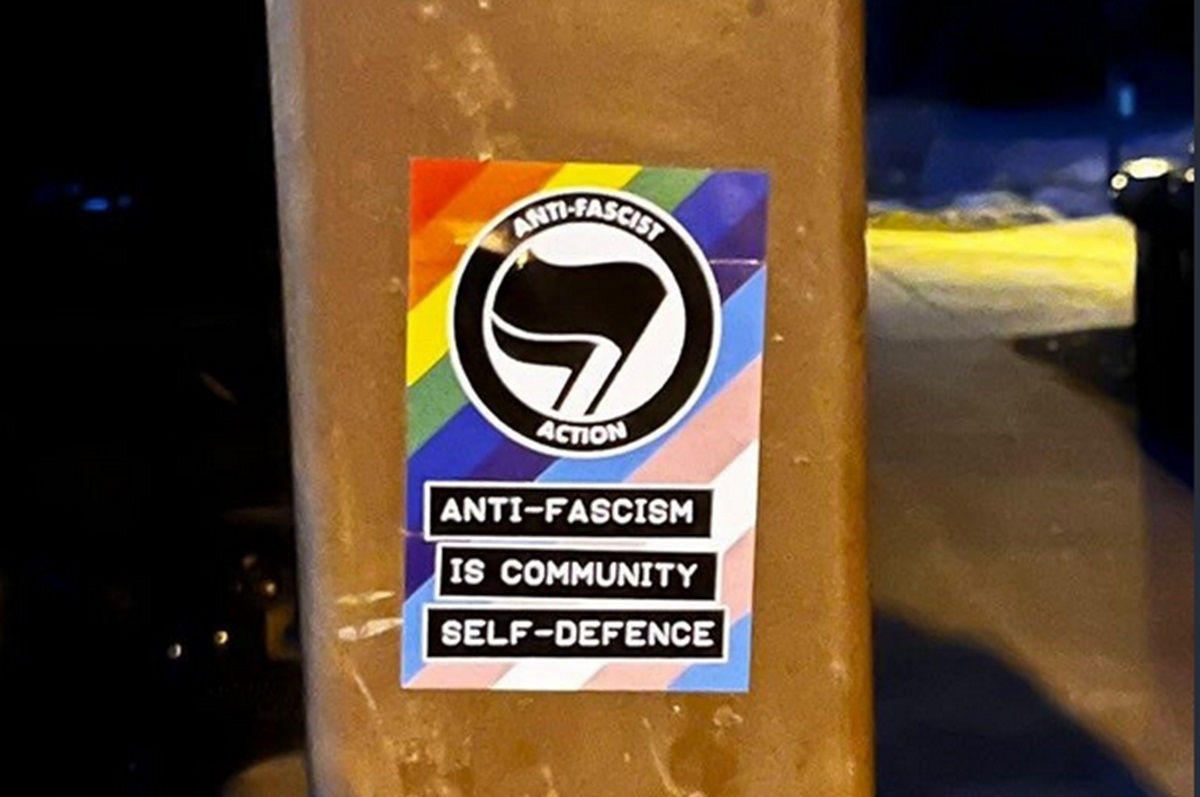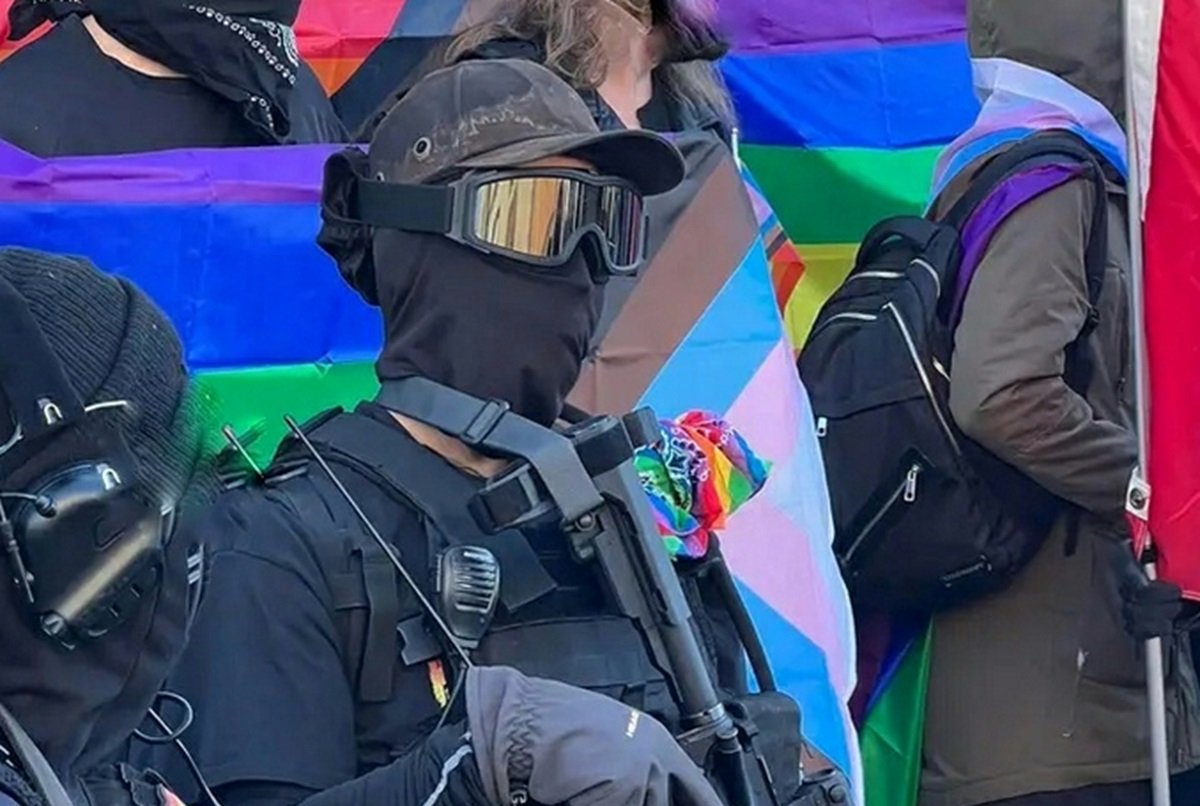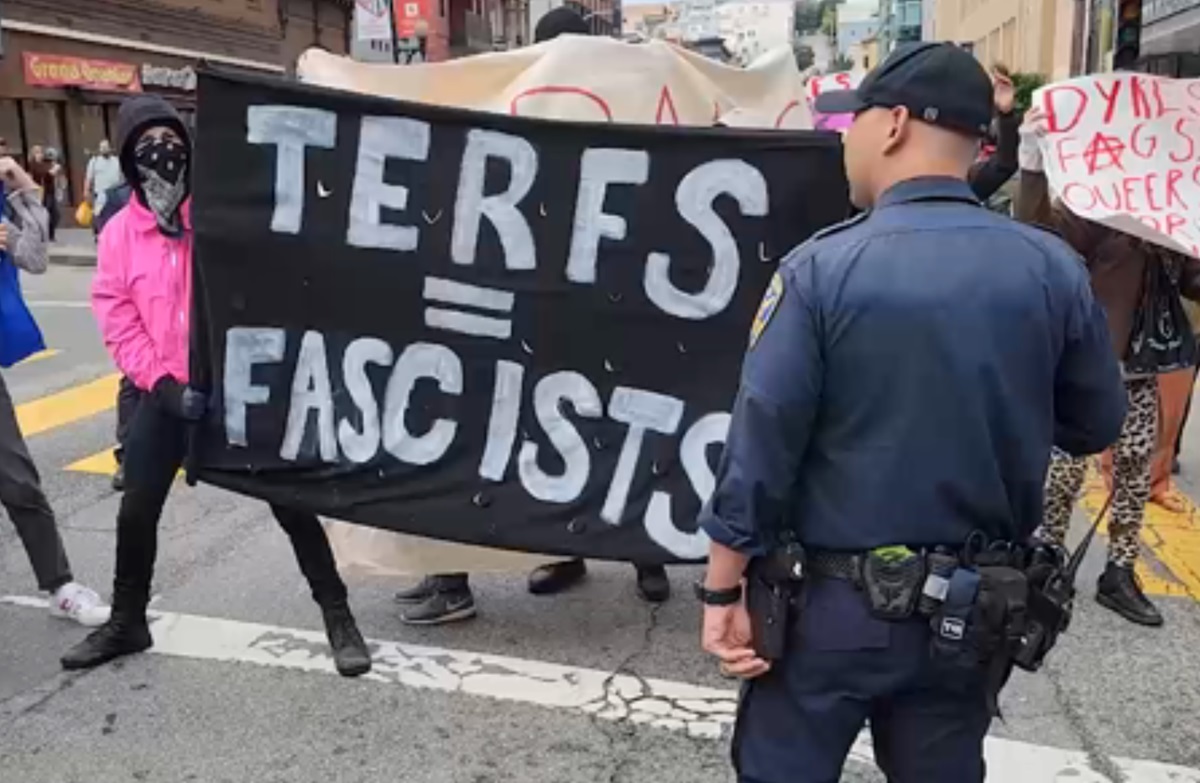Filed under: International Coverage

Despite massive police violence, crackdowns, and raids, over 100K people have mobilized in Hamburg, Germany against the world’s leading neoliberal politicians and bankers to reject a world of austerity, war, ecological collapse, and capital. Below is a roundup from the CrimethInc. liveblog and tweets and photos from Unicorn Riot. Also be sure to check out Enough is Enough’s liveblog here.
The Police Lost Again Tonight in Hamburg: Why They Couldn’t Keep Control
Tonight, for the second night in a row, approximately 20,000 police armed with the best crowd control technology money can buy utterly lost control of downtown Hamburg. Last night was bad enough, with clashes and decentralized attacks continuing well past sunrise; tonight they were forced to withdraw completely from the Schanze neighborhood for several hours, as barricades burned in the intersections and thousands of people of all walks of life joyously celebrated a police-free zone. Now the mayor who invited the G20 to Hamburg is pleading for the end of the violence he started.

This shows that, even with the very latest technologies, no amount of police violence can control a population that is determined to refuse to be dominated. This is good news for partisans of freedom everywhere around the world.
As we compose these lines, the police are storming Schanze with the utmost of brute force, recklessly pointing machine guns at reporters and everyone else, seeking to avenge themselves on those who remain on the streets after most participants have gone home to rest. The special forces units of Hamburg and five other cities are deployed on the streets, as well as Austrian special forces. But no amount of violence and oppression can conceal the fact that they lost control—and more importantly, that they never deserved control in the first place.
Conspiracy theory nuts will allege that the G20 was intentionally placed in Hamburg to provoke the population in order to justify further crackdowns on civil liberties. This is half true: in putting the G20 immediately beside one of the most radical neighborhoods in Germany, the authorities were testing the population to see how much people will put up with. Hamburg is being treated as an experimental laboratory of repression, with police officers brought in from several other nations in the European Union to study repressive techniques.
LIVE: Riots nonstop as #G20Summit meets to decide 85% of global GDP in closed door meetings. https://t.co/AdTJz5GaxP #NoG20 #NoG20en #W2H pic.twitter.com/X4eLN0mYtT
— Unicorn Riot (@UR_Ninja) July 7, 2017
But if we can make it impossible for the police to control us despite more than one out of every twelve officers in all of Germany being concentrated in a single city, then surely we can defend our freedom from the state as a whole. The point here is that we cannot be cowardly, clinging to the illusion that the state will permit us our freedoms if only we are submissive enough. No people has ever achieved or retained freedom that way.
Things have reached a point of no return: the future will be revolutionary liberation, or it will be a police state. The supposed middle ground, in which limited freedoms are watched over by a state restrained by the will of the people, has always been a myth, an illusion that is harder and harder to maintain.

Let’s look closer at the breakdown of police control. In 1987, the German police began to shift to their current model for crowd control, in order to correct for the ways that crowds had outmaneuvered and defeated them—especially on May Day of that year. The subsequent model of German policing, in which long lines of riot police are supplemented with highly mobile snatch squads that maintain close contact with the crowd, has more or less served to control urban unrest until now. (For a more thorough overview of the recent history of German police tactics, consult this helpful article.)
In 2017, exactly thirty years after the origins of this model, the crowds of Hamburg succeeded in once more outmaneuvering and defeating the police. This time, they did so by spreading the action over a vast area of the city, moving swiftly and focusing on decentralized actions. Whenever the police established a control line, people gathered on the other side of it—not only demonstrators, but also supportive spectators. Small, highly organized and mobile groups of demonstrators were able to identify exit routes and carry out swift attacks, while larger crowds stretched the police one direction, then another. The more territory the police had to control, the more they antagonized the population, and the more demonstrators they had to deal with as their lines became more and more thinly stretched. Finally, they lost control of the most unruly regions and were forced to retreat entirely.
Fires continue to burn across #Hamburg as riots spread wide during #G20 – watch earlier stream: https://t.co/AdTJz5GaxP #NoG20 #NoG20 pic.twitter.com/gQcwDVNLNl
— Unicorn Riot (@UR_Ninja) July 7, 2017
In addition to tactical concerns, however, the most important blow to the police has been that, by going to far in seeking to control the population by brute force, they lost legitimacy in the public eye. Their absurd and unprovoked attack on yesterday’s Welcome to Hell demonstration turned the entire city against them. No wonder they have lost control.
They will surely regain it, probably at the cost of a great deal of suffering inflicted at random on those who remain on the streets. But we should be heartened by the fact that they were beaten, that they could not control the population—and we should be inspired by the tremendous courage that people have shown in Hamburg, standing up to such a powerful adversary and refusing to back down.


Schanze district has been liberated for several hours, with protesters actively defending it at barricades. Within the area are many looted shops, barricades on fire, and people ready to fight. As we write, special police forces are preparing to enter the rebellious zone in huge numbers, armed with water cannons and heavy equipment. As the cops try to remove the barricades, the people of Schanze are fighting back.
Special forces are carrying automatic weapons as they stand on the rooftops across the districts of Schanze. Cops have aimed guns at the press, as well. Weapons with live ammunition are confirmed.
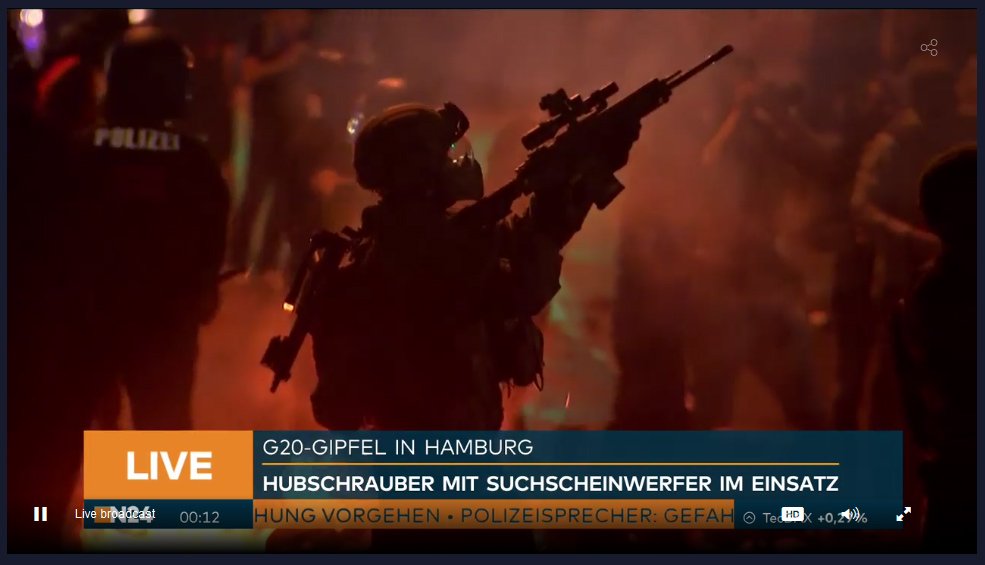
Special forces are in front of Rote Flora. Inside are people who have been injured. In total, 20 people have been provided with medical care, 3 were taken away in ambulances to the hospital, and there are still many injured people on the scene.
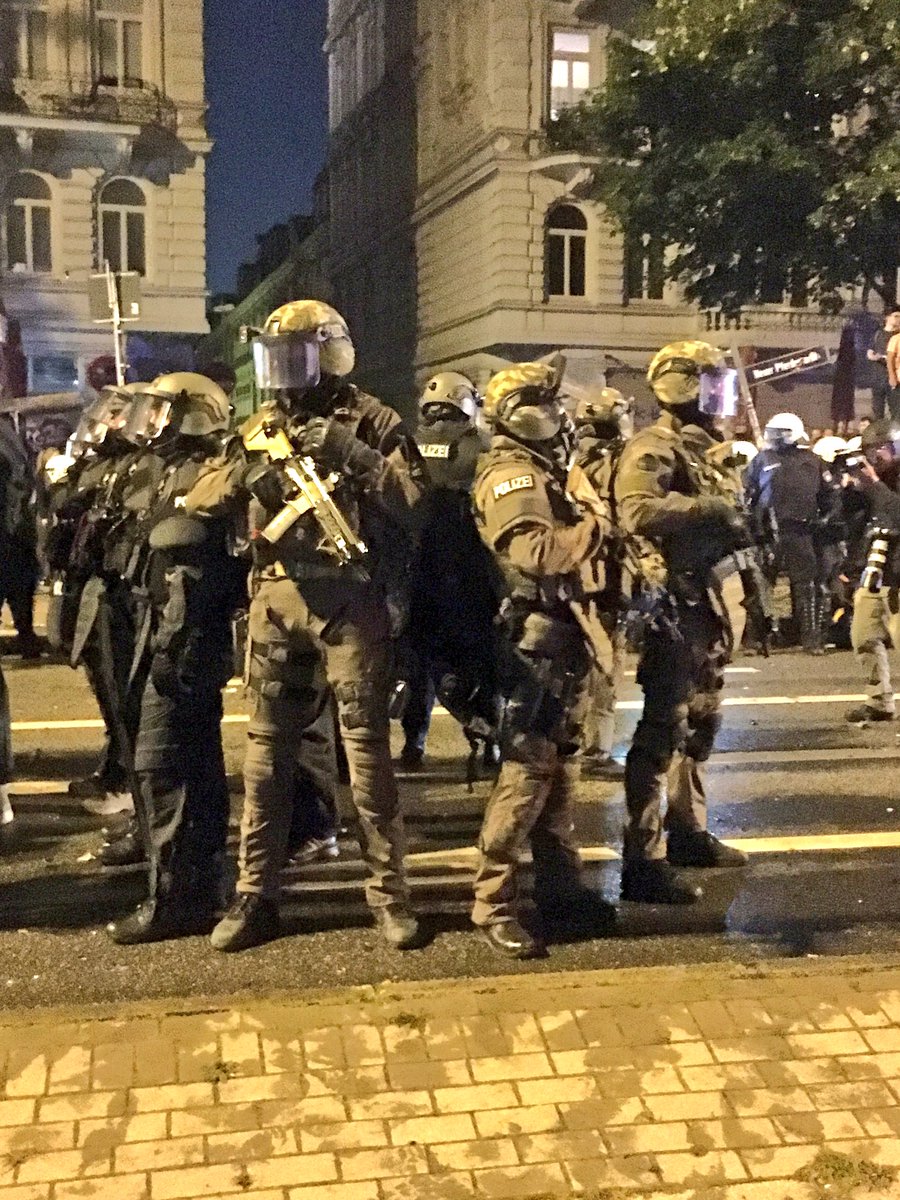
Hamburg vs. the State: How the City is Fighting Back
As the night descends on Hamburg, we can see the full moon through the smoke. People are playing volleyball in the street, celebrating their victory over the forces of the G20 and attempted police occupations of their streets. There are even bigger reasons to celebrate as we anticipate a long and rebellious night ahead.
Scenes from St Pauli few minutes ago. #WelcomeToHell #NoG20 pic.twitter.com/4WNOTaZWRy
— th1an1 (@th1an1) July 7, 2017
Despite numerous attempts by the police, the state, and mainstream media to divide protesters by framing them as either “violent” or “non-violent,” Hamburg’s message remains clear: solidarity without compromise. When police attack demonstrations with brutal force, without provocation, the people turn against them. The police, working hand in hand with the media, attempted to spread fear by describing hordes of wild, autonomous radicals streaming into Hamburg from across the world, bringing pandemonium. Yet at the end of the day, Hamburg’s own people defended it from police aggression, refusing to give in or give up any of their comrades in black fighting fiercely alongside them for their streets.
As we see how intense and widespread the clashes have been in Hamburg over the last 48 hours, as we witness people’s determination to regather every time the police push them back, and particularly the joy with which they resist when told to stay away, it is clear that this struggle in Hamburg is more than just a struggle against G20.
Hamburg lahm gelegt – Gipfel massiv gestört. Eine erste Bilanz des Blockade-Aktionstages. #NoG20 #G20 #blockg20 #G20HH2017 pic.twitter.com/WbyP3AewOY
— Leftvision (@LeftvisionClips) July 7, 2017
For years, authorities have systematically tried to push back against Hamburg’s local autonomous networks—both by attacking the political gathering spaces and by displacing people from their neighborhoods with rising prices of living. The attacks on cars, shops, banks, and police over the last two days are not just a blow against the G20, but against the symbols of gentrification and dehumanization that are real, daily battles for the people of Hamburg.
This is why the city has resisted the narrative of the police and the state, and opened their arms in support of joyous rebellion.
The summit has been massively disrupted. Hamburg won.


